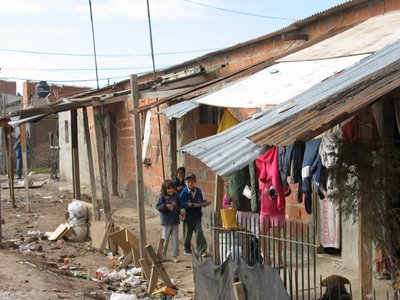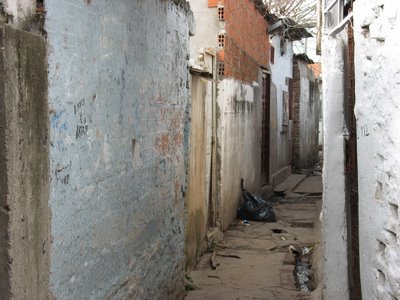When one thinks of Cardinal Newman College in Buenos Aires one can be forgiven for thinking that it is a prestigious Christian Brother institution with a remarkable reputation for achievement in academics and sports. It is all of these. But it is also more. Since I’ve been here I’ve come to know Newman as a remarkable community of people. There was a time when I myself strove to facilitate a community of teachers and learns in a context of mutual respect, inclusion and commitment. Here, I see this ideal in action.
It is in no small measure due to the leadership of the current Head, Alberto Olivera. Alberto is a lawyer, has a Masters degree in Education and has wide connections withe the Buenos Aires legal, educational and social justice community. He has facilitated in recent years the deepening of Newman’s connection with the local community and the city. His interest in social justice is clear and his commitment to its promotion shows itself in the support he offers to a wide range of initiatives.
Newman boys work with children with disabilities, the elderly and with people in the local barrio, La Cava. Each year they mount a two-week mission in the interior of the country where they assist in catechetics and evangelisation among the poor of a city called Azul. The mothers of Newman are active in providing clothing and food to poor people living in a rural barrio outside the city. Newman has developed a relationship with businesses in the city and through this relationship has established a food bank. They even have a special NGO for this work called “Teniendo Puentes”, building bridges. What is very clear is that Newman has developed a strong ethos of solidarity with the poor that is quite remarkable. So, when you think of Newman, don’t just think “rugby”, think also “solidarity”.
Of course, all of this did not happen in the last two or three years. There are some remarkable people here in Newman. Among them are people like Jim Doherty and Paddy (“Pablo”) Keohane. Jim goes out to the poorer barrios delivering food supplies and making contact with the local people. I had the privilege of accompanying him on one such visit. Pablo Keohane is a one-person NGO, retreat-team, youth organisation and spiritual guide. His influence on the boys is unparalleled in my experience. He is active 24/7 with the boys helping them with retreats, leading the mission teams, working with them in their social justice projects, and generally being available to them.
When I asked Alberto Olivera, the headmaster, to what he would attribute the strong social service ethos of Newman, he replied without hesitation: “Brother Paul”.
Throughout the Latin American Region of the Christian Brothers there are many people who are unsung heroes and genuine pathfinders for a new way of being Brother today. People like Paul Keohane are certainly among them.
It is in no small measure due to the leadership of the current Head, Alberto Olivera. Alberto is a lawyer, has a Masters degree in Education and has wide connections withe the Buenos Aires legal, educational and social justice community. He has facilitated in recent years the deepening of Newman’s connection with the local community and the city. His interest in social justice is clear and his commitment to its promotion shows itself in the support he offers to a wide range of initiatives.
Newman boys work with children with disabilities, the elderly and with people in the local barrio, La Cava. Each year they mount a two-week mission in the interior of the country where they assist in catechetics and evangelisation among the poor of a city called Azul. The mothers of Newman are active in providing clothing and food to poor people living in a rural barrio outside the city. Newman has developed a relationship with businesses in the city and through this relationship has established a food bank. They even have a special NGO for this work called “Teniendo Puentes”, building bridges. What is very clear is that Newman has developed a strong ethos of solidarity with the poor that is quite remarkable. So, when you think of Newman, don’t just think “rugby”, think also “solidarity”.
Of course, all of this did not happen in the last two or three years. There are some remarkable people here in Newman. Among them are people like Jim Doherty and Paddy (“Pablo”) Keohane. Jim goes out to the poorer barrios delivering food supplies and making contact with the local people. I had the privilege of accompanying him on one such visit. Pablo Keohane is a one-person NGO, retreat-team, youth organisation and spiritual guide. His influence on the boys is unparalleled in my experience. He is active 24/7 with the boys helping them with retreats, leading the mission teams, working with them in their social justice projects, and generally being available to them.
When I asked Alberto Olivera, the headmaster, to what he would attribute the strong social service ethos of Newman, he replied without hesitation: “Brother Paul”.
Throughout the Latin American Region of the Christian Brothers there are many people who are unsung heroes and genuine pathfinders for a new way of being Brother today. People like Paul Keohane are certainly among them.



